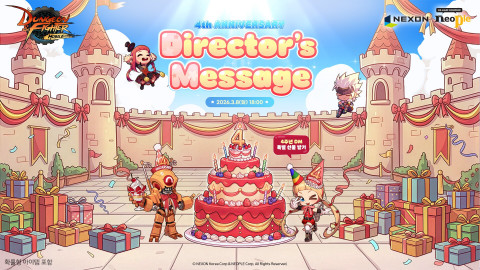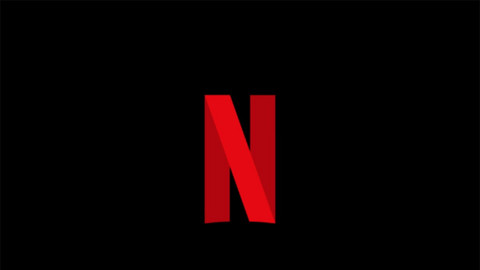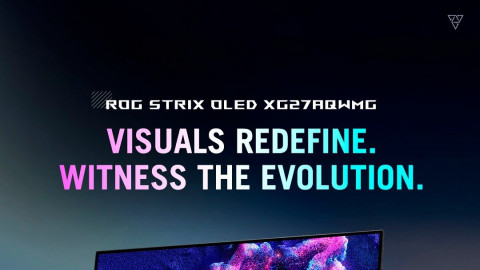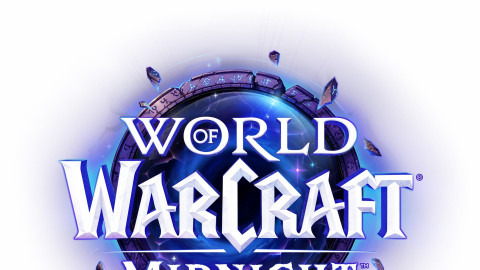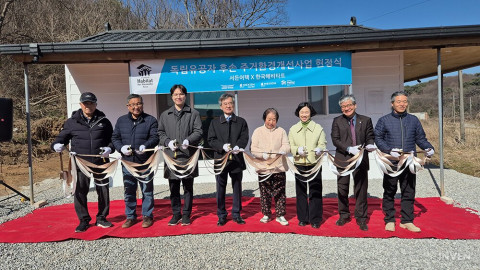“I will always keep shooting for the stars.”
Christopher “PapaSmithy” Smith is already a familiar and friendly face for those that follow Hearthstone, LCK, and recently Overwatch. He has appeared in multiple international events as the color caster that represents the Korean LoL scene, last year in Worlds and this year in MSI. After he advanced further in his career to cast Overwatch APEX in its third season and just before he left to Brazil for MSI 2017, we had a chance to sit down with him and hear the story about how he started as a shoutcaster and what further steps he wishes to take after an already successful career.
He shared his history and passion for LoL and Overwatch as well as the standards he holds his work to, asserting that he cannot be satisfied in doing a mediocre job casting what is already great. All the stories surrounding teams and players that have bloomed and dissipated throughout League’s history; macro breakdowns of SKT T1’s 1-3-1; an unbiased opinion surrounding the cultural difference in the East and the West; Papa provided in-depth and impassioned answers no matter how broad the question we give was. Not only is Papa an admirable shoutcaster and esports fan, he is also an outright joy to chat with.

I do think you are a little underrepresented among the Korean esports crowd despite your stable career throughout the years. Would you like to tell us about yourself?
My name is Christopher Smith, and most people know me as PapaSmithy. I am OGN’s LCK caster, now also Overwatch APEX caster, and former Hearthstone caster. I’ve been working with OGN for just about two years now, with focus on Korean League of Legends. My casting career started many years ago as a freelancer back in 2012 and 2013, so I’ve been around in the Korean LoL scene for a long time, but when it comes to being the caster for LCK, it’s been two years now.
You are one of the few people that can represent the LCK scene when it comes to international events, like you did in Worlds last year and also in MSI this year. What do you aim for in general when you are telling people about the Korean scene? Any special things you consider besides the things the general crowd would already know?
I take the approach that I am coming in pretty late in the game. I did my first event in season 6, and I was lucky to have MonteCristo with me to lead the way when it came to fighting for recognition, because during the earlier days when he started casting, there was the question of how good the Koreans were and if they could match up against other regions. By the time I came, everyone already knew that the Korean teams were the best teams.
I try to focus more on the stories of the Korean teams because, if you look at the viewer numbers, you know that a lot of people watch LCK in English. This means that a lot of people know Korean teams are good, but it’s much better to give them the hook. Let them know why they are good, what the players’ stories are, and make them relatable. We build storylines based on their play. We just allow English-speaking fans to personalize Korean players and, for example, let them understand that there was a lot of nuance between SKT T1 and ROX Tigers last year. The storyline is different, the players are different, and the playstyle is different. Honestly it’s about humanizing for the western fans, letting them know about it.
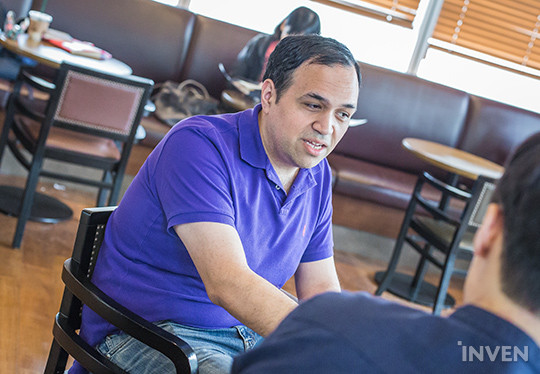
We also answer questions. People want to know, “Ok, but I support TSM, I support G2. Are they going to beat the Korean teams?” Even they know that the answer is probably no, explaining what that team needs to do or why there is the gap between these teams is important. We now know there is a gap, but it’s kind of a revisiting process. Is it the same gap? Is it just that they are better at pushing buttons? Are there different things that have evolved in Korea separate of what happened in other regions that made Korean teams come out on top at the end?
What has your life in Korea been like? Is anything different now from when you first came here? How did it come through?
Two years in Korea, was I happy with that time? Have I been staying healthy? My weight’s doing alright [chuckles] and that’s an important question.
I love Korea. Korea has been very giving to me. I’ve spent time overseas before so it’s not a new thing for me to live in a country where English is a second language. I grew up in Dubai for a lot of my early years as well. While I didn’t have a great understanding about what Korea would be like when I got here, I was ready for culture shock, but it’s been more of an appreciation and embracing of Korean culture than a shock of any sort. The people are friendly, the food is great, it has the best LoL in the world… I can’t really ask for much more. It’s very safe as well along with its vibrant nightlife. There are a lot of things to do when you go out and stuff like that.
Korea has honestly been an endless pleasure also since I’ve had the fortune to work for OGN as well. They are so giving, very supportive, and do such great work with what they do. It’s cool to work in a job where one day you would go and see new broadcast tricks like AR, in which the players are projected in 3D on the screen. I always get excited just to be in the job. It’s just been a pleasure. I love living here, and I want to live here as long as possible. The job is great, and every day is a blessing.
What brought you to Korea all the way from Australia? How did it happen?
I started casting a long time ago when LoL was in season 2. That’s almost five years ago from now. That was back when Australians were still on the NA server and probably just after Korea got its own server, so it was very much the early days of LoL. I casted just the Australian games, which had pretty small viewership. Then I got more opportunities since I started working with ESL Asia at that time and got into small Korean games like the ESL qualifiers.
I did the first ever tournament that kt Rolster played in; Enter the Dragon. So long ago now. That was kt Rolster A and B’s debut. I also casted SK Telecom’s League of Legends debut with historic LoL figures like Reapered and MighTiLy, so I’ve actually been casting the Korean scene for a very long time already.
So you literally grew up with the scene.
I did. I was a subscriber to OGN’s LoL casts before they were on Twitch. I don’t remember exactly what platform it was, but I subscribed in Season 2 as I was casting on the side of these tournaments. A lot of my focus was on the Chinese scene because that was the one with major champions that could compete against each other. There was also a lot of interest around the Taiwanese scene at the time, especially after Taipei Assassins won in Worlds.
I was casting all this in English with Pastrytime who now casts for NA LCS, and at the same time I was watching Monte and DoA and also other talents that casted before them. I appreciated all the pageantry around Korean esports, and I thought it would be a big chance to see a new side of LoL away from the NA and EU teams of the time like CLG and Dignitas. I took a very winding path as I was outside of Korea doing a split of LPL in 2015 Spring, but I realized that this was my casting dream when OGN came calling me. That’s how I packed my bag and came to Korea. I’ve been here for two years, and I hope to stay for plenty more.
What changes in LCK have you witnessed throughout its growing years, aside from it growing bigger? Did the game change a lot in terms of its strategical depth?
It had to change, of course. A lot of people hold 2014 as the gold standard of any period in LoL, specifically for Korean LoL, when the tournament was still the old Champions format which is now pretty similar to the Overwatch APEX format. It has brought out different things. I remember doing an interview recently, in which they asked me about Afreeca Freecs. I said, “if you put them in the 2014 Champions, they would have been way better than they are in LCK,” because it was about preparing for three matches, getting a long time to prepare for your matches, and get motivated because once you won the three matches you were going to the next stage. It was elimination after elimination.
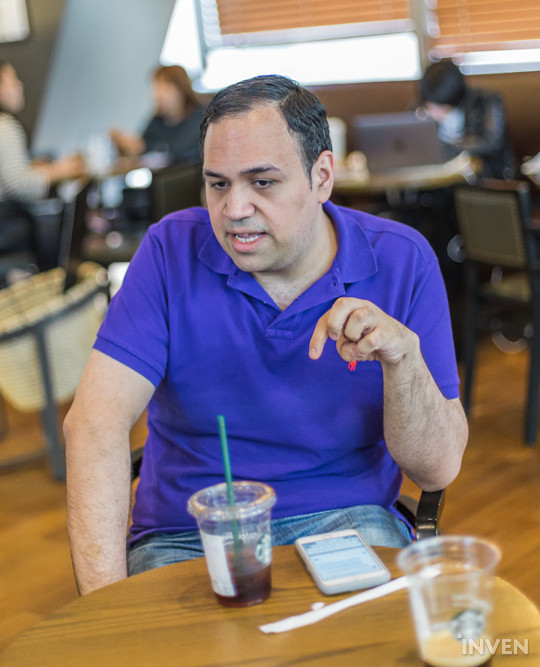
It wasn’t double round robin against nine teams and, while some teams and players thrived in that, some others died as well. There were also players from the 2014 and 2015 era whose style was inevitably going to be better in these more focused high-stakes short tournaments over long tournaments. The best players have changed, but they are always Koreans, so that part stays the same, but whether the current scene is better or worse than before is an interesting question. I still have the same love toward the 2014 scene, but I think 2017 Spring was the best season we’ve ever had in Korea when it comes to competitiveness. While things have changed a lot, I am really happy with where we are right now.
Getting back to the cultural part, there are many differences in the eastern and western culture when it comes to the moral standards among pro gamers. We witnessed certain moments in which Korean pros were highly criticized or sometimes even banned from the competitive scene because of certain issues that were addressed against them. What is your opinion with that? Could it be true that some Korean fans are overreacting to certain things?
The thing is, the moment you come as an outsider to South Korea like me, I cannot make judgement on what is valid or not in Korea, because you are interfering in kind of a situation in which you are not fully briefed on both sides. For example, the recent drama around Rogue in Korea, my first response was, “okay, well this doesn’t really make sense to me because it seems like they were just having good fun,” but that’s from my culture. I’m in no position to pass judgement on anyone else’s responses, so honestly all I do in those sorts of scenarios is stand back and survey both sides while trying to understand both. I actually come from a psychology background. I was a counselor before I was a caster, so I’ve always tried to be the balanced one.
That’s why casting with Monte was always a delight because Monte is very much like, “well this is bad!” [slams the table] and I was always like, “well, maybe that’s my first instinct as well but let’s understand what it is and see it live.” Then we can know for sure if it’s bad, and that’s the fun thing because when you have someone like that I can be like, “well it does this, it doesn’t do what everything else did or the way we expected, but let’s see what it looks like.” I think having both sides of the coin is important.
When it comes to specific drama around cultural things, I just try to stay away from it and appreciate both sides while making sure neither side is being completely ignored or unrepresented. If people feel very strongly about something in two different ways, there’s probably a good reason for that which may not initially be super clear to me. It’s not for me to say what’s right or wrong on that, but of course there are times when I feel like I don’t understand the drama around South Korea that is such a big thing for other people.
Korea does have more strict moral standards for pro gamers. Do you think that does more harm or more benefit to the Korean esports ecosystem?
It’s a hard question to parse. It’s the product of the region. When this particular Rogue drama came up, and I was hearing about it before it had gone massively public in the western side of things… It is a Korean tournament run by a Korean organizer that needs to serve the Korean fanbase, so when it comes to if it is good or bad, it’s such a connected question. I think it’s an important thing for their Korean market. I think it doesn’t necessarily translate well to the western market, but is it something that will actually hold back growth? I don’t think so. I think it always goes the same way. People would be like, “I don’t understand this,” then English commentators in Korea would explain why, and people would understand it a little bit more, get a little bit silly or very serious depending on the situation, and move on. People do what they have to do, and the primary fanbase was the Korean fanbase [in this case] so they needed to abide by the things that made sense to the Korean fans.
Wow, you really are balanced. You did not tilt at all.
No, no tilting. That’s what I’ve got to do. My favorite tilt moment was when I cast the KT vs. Samsung semifinals, I was told that I was incredibly biased towards Samsung. And then I was incredibly biased for KT. The secret there is that, if you are incredibly biased for both teams, it means that you are doing a pretty good job casting, because that just means you are biased towards people playing well. And that’s the secret. People talk about the casters being biased, like this guy is obviously a TSM fan, or this guy is obviously an SKT fan. Monte also had that with SKT, but people who knew him well knew he was a KT fan. That part he did not hide. But people who only interacted with him in Worlds season 3 thought he was an SKT fan.
I think that’s because of how people interact with casters. For example, you are at some point PapaSmithy, not just Christopher Smith. You become the man of the cumulative body of work and personality that people ascribe on to you based on the things they know. Who you are does twist and turn because everyone sees me differently, but when it comes to me in particular, I am just biased for good games. Just show me good games. I want people to make decisions and follow the train of thought that led to their decision and then reach a resolution by comparing what went wrong and what went right. So, if a team that made the smart and innovative decision followed it through and won, I’m super excited. I’m now biased for the team because I like the way they play. But if they play bad in the next game, the bias is gone.
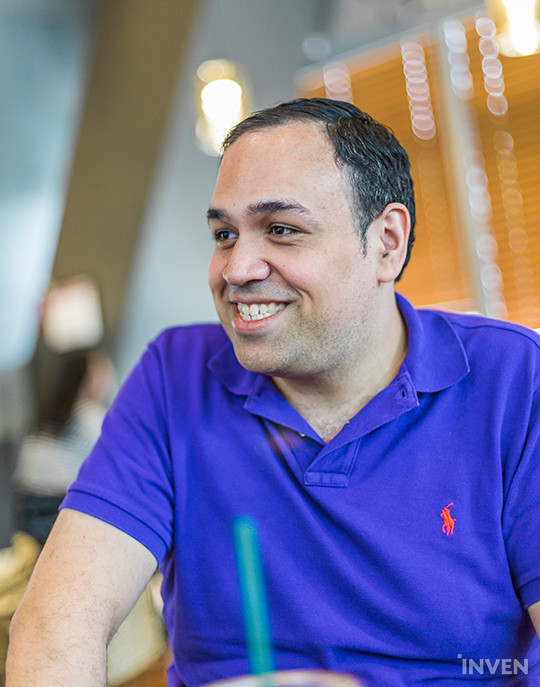
I think that style also links to your casting style, your personality. How would you reflect on your personality as a caster and what kind of personality do you aim to become?
It’s a hard question, although I do get that question a lot, such as what kind of caster I am or what I feel strongly about. The thing I feel most strongly about is the narrative, the storyline, which is really doing justice by the players and making sure that every game is special one way or the other. One of the moments when I appreciate the League system is when you reach a game that is not a big thing on paper. Everyone gets excited for a SKT vs. KT matchup because there is so much history there, but a game like MVP vs. Jin Air is not a massive superstar match on paper. However, in the League, it’s always about where they are coming from, what their runner form looks like, where they are looking to go, what the expectations were before the season, where they are now, what their trend has been in terms of actual in-game analysis like picks and bans, how that fits with their players, where they are going… For me it’s always about, “what is the story of this match?”
That’s the cool thing because OGN is pretty hands-off with that sort of thing. That could be daunting for certain people but it’s freeing for me because I can look at a match and find by myself the things that draw my attention. That’s not necessarily as important during the early stages of a casting career because you need to get everything right and you don’t want to make any mistake. I’ve been doing this for long enough now, and I’ve learned that if I find something interesting, I’m pretty good at getting other people to find it interesting too. So it’s all about articulating and basically showing people, for example, why you should watch this game, and that’s what you want for basically every match.
Sometimes it’s so easy. LCK finals? Easiest game to cast ever. SKT vs. KT, every storyline coming to head, the Telecom war, it’s so easy. But while that’s obviously a pleasure in its own way, a 70-minute Jin Air game can also be great if the storyline is there. I guess for me it’s always about making sure that the viewers have something to latch on to whether it’s the strategy, new pick, new patch, where the teams were, where they’re going, who’s been performing, who’s been underperforming… No one wants to just watch a game and spectate like a friend on your list. You want it to be something special. We might not always get that, but I guess it’s about making games special and really doing justice by production, the players, and everything else. Those are what I shoot for when I cast.
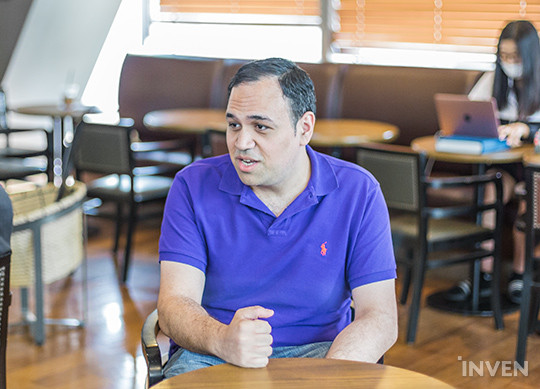
What is your opinion about this year’s LCK? Did you enjoy watching the Telecom derby? Which team or player do you think shined the most?
It felt like we were building towards the big matches when SKT and KT were undefeated for a long time, but we took a lot of turns from there. KT Rolster was obviously building themselves up for six weeks to face SKT, but as you could also see in how they played after that, something was gone. We don’t know exactly what that something is, but a spark was gone. Communication seemed worse, identity seemed less cohesive…
Then Samsung rose up as the team that really looked like they had [the capability to go against] SKT. That Samsung vs. SKT match with Haru on Graves just walking in there doing unspeakable things to Peanut, you don’t see things like that very often. That was the game where Haru basically won the jungle match very obviously on Graves against Elise, with SKT losing three lanes at once even just in a regular season game. That’s something that can spark an international discussion.
That’s the cool thing about League of Legends. Whenever something happens to the big Korean teams, it’s a watercooler moment around the world where people would go like, “are they defeatable?” Some fans would say that it was just a regular season game and it does not matter that much, but you know that in the back of their heads they are like, “that could happen again.” Stuff like that is just fantastic. Then we had KT vs. Samsung, where we had a new story with KT finally rising again: KT rising like a phoenix after basically like 8 or 9 weeks of not being at the same level. Then it became the same story. Every grand final time it’s like SKT versus the team that you want to believe in.
This time though I was smart. In the past I was always guilty of looking at SKT before finals and being like, “okay, this team can do this, and I think this works against SKT, so therefore this team will win.” I was always a believer in ROX against SKT and I was wrong many times in that particular one, but this time it did feel like SKT had KT’s number. So, while the outcome was expected, I am happy that we had a path that wasn’t just “SKT and KT are the best and why am I even watching the other 8 teams because it’s going to be SKT and KT at the end.” It felt like that for a bit, but with Samsung rising up, the good story of MVP keeping their roster of good players but not importing any stars before they could rise up again… We still have storylines all over the place and a lot of things to talk about like PraY and GorillA falling away in Longzhu as well. We also got to the finals that everyone around the world could appreciate. KT vs. SKT. And that was 3-0, let’s not talk about that, but every other part of the season has been pretty great.
Let’s move away from LCK to your recent casts in Overwatch APEX. Are you simply filling the gap? Or have you been wanting to cast Overwatch? How did you come up with the decision to cast APEX?
I’m sure a lot of people wonder that. I’m working full-time with OGN so it might seem like I was forced to cast Overwatch, but it was not like that for me. I started playing the game right at the end of the closed beta release along with other casters, and Monte and DoA were long time believers in Overwatch. They were basically like, “the moment we have Overwatch in OGN, we want to be part of it and we will be very into it.” I always knew that I would have to bide my time. I wasn’t going to be able to jump in and do it from the start because it was going to be their thing.
It doesn’t have to be an “Overwatch or League of Legends” thing. I enjoy both games. Overwatch is still very much at its infancy and evolving with APEX and new things, but I really wanted to spend some moment in Overwatch history that really resonated with me and showed me that this could be the game for me to love, because I love committing to a game. I love deep analysis and I really respect the game and the players behind it.

The big moment for me was when LW Red were playing online in an NA Tournament and pushed the payload in Overtime in Hollywood all the way with Pine playing and all those things, and that was the first time when I was like, “this is so tense and so amazing.” I was feeling all the same things I felt when there were great games in League of Legends. “Okay, there is something about Overwatch. It’s not just one guy shooting another in the head, with ultimates on the screen.” There’s deep strategy, and also tense moments that I think are the best things about esports, and Team EnVyUs’ very long online winning streak being broken on LAN, and they may have the same thing with Rogue now that they are in APEX.
I quickly came to understand that there are things about Overwatch that are very compelling to watch, so I’ve been watching it with an eye to cast it for about 8 months now. I’ve just been kind of waiting for my turn, and while I’m sad to talk to my closest friends and colleagues leaving to get that chance, APEX is a reward for me and it’s not a burden in any way. I’m very excited to get in there, and when LCK and APEX are running at the same time, I’ll still be doing every LCK while keeping up with APEX. Scheduling-wise it will be full-on, although I would not be able to cast all matches of both games. I would love to do so, but getting a chance is all I asked for and hopefully the fans would enjoy what I can do with APEX. Casting Overwatch is definitely something I wanted.
I think you did great. Getting the details that the viewers could possibly have missed out on, ult economy, play-by-play analysis…
You flatter me too much. I guess that’s my style born out from my previous career, but I think it’s also about making the things that I find interesting also interesting for the viewers. If I was able to do that that’s a great thing, and I’ll just continue to try to to do that. Overwatch is a very busy game. At times it feels like Marvel vs. Capcom or other fighting games like Street Fighter. It’s also very visually busy with so many ultimates happening on the screen. Can I take a step further to show the nuance and strategy behind it? That’s what I am shooting for.

Back when you did the Reddit AmA you mentioned prowrestling as one of the elements that inspired you to become a caster. That made me question what your opinion would be about certain organizations in the esports industry trying to promote esports just as they would do with traditional sports. Esports and sports are different in their nature, but at the same time there are people who want esports to be respected just like regular sports. What do you think?
The quest of legitimacy, right? Everyone and every region is shooting for something slightly different based on what the popular broadcast style is in their countries. If you look at Riot, they are very much shooting for ESPN or professional football style and just wanting LCS to be an extension of that. If you look at Korea, OGN goes for a very different vibe that celebrates the players but also allows us to laugh at the players. And again we get back to the question before about the morality of certain things, which again I think does vary depending on the region.
I prefer the Korean approach because I prefer celebrating both the silliness and also the badassness of the best players. I love that whenever it’s an OGN finals broadcast because everyone is there looking like the biggest badass ever. Faker looks like a god sitting on the throne, and at the same time we’re laughing at Score for all his unfortunate losses. We need to have both sides of the coin because while we do need to know who our fanbase is, I feel that all of our fanbase can appreciate both sides and kind of know someone that sits on both ebbs. I do appreciate celebrating the pageantry and also the silly side of things.
When it comes to style, I can adapt. When I go over to Riot events it’s different compared to OGN events. I was definitely nervous when I was at Worlds last year because whenever you are casting in the League of Legends ecosystem Worlds is like the end goal. You don’t really think further than that. This is what everyone wants. It was a very special thing and it was very great to be involved there, but I love coming back to LCK and doing the lighter side of things and having a bit more fun, so I don’t profess to know which is the best one, I don’t even know if there’s a single best global approach, my favorite approach is the OGN approach, which sounds very convenient for me to say. There is bit of lightheartedness, and the prowrestling side definitely comes to story sometimes. I try not to use too many prowrestling references, but nobody has put tables in esports unfortunately, maybe that should happen in some of these videos. [laughs] A bit of silliness would never hurt anyone.
Will we see you more often in APEX?
The plan right now is whatever OGN is planning. I don’t know what OGN’s official decision is yet, but I will be doing all of LCK because that’s my home that I love so much. I’ll be sharing APEX while I do that. Right now we have two play-by-plays and two color casters, so one each day; a day of Overwatch with as many days of the League as there are. It’s just how our talent works right now. We don’t have another expert for League of Legends after MonteCristo left so I’m there to shoulder out the burden, but if I need to work a bit harder to fill in my new love, which is Overwatch, I will. I feel very passionate about it, and it turns out there are 24 hours a day and 7 days a week, so when it comes to passion, I’ll make the time.
Probably this would mean that my next interview after some years would be about how much grey hair I have, but for now the plan is to participate in as much League and Overwatch as I can. When I tweeted about this someone went like, “does that mean you are leaving League of Legends?” No, it doesn’t have to mean that. Making everyone happy is difficult and definitely not something I can shoot for, but it isn’t so much about making everyone happy as it is about doing the broadcast justice, because APEX is a special field and it feels like a very different broadcast to me. LCK is an extension of something that’s been around for five years that I feel so passionate about.
I was sitting with my dad in Korea recently explaining the intro to the LCK spring finals. I was basically explaining every camera shot and little nugget, like Mata walking towards Faker’s throne which was a reference to the 2013-2014 winter finals: Samsung Ozone vs. SKT T1 K. These were the only two players that were there, so it was a reference to a historical theme. Then I started talking about all the other intricacies. These are things that some people already know about, but you kind of have to really want to know about it. Watching the intro and seeing Score standing in the middle with all the players walking towards him while knowing that the team was made around Score because he was a superstar… I love the nods to history and pageantry around that. All that stuff is just awesome. That’s what esports is all about to me.
Did you have a good time with your parents?
They had a good time. It was their third time, and they come once a year when it just starts to get warmer but not too hot. As we all know summer here is very hot, and the winter here is cold too. They live in Dubai, so they know about hot weather as well. They love it here. I think everyone who comes to Korea just loves it. It feels like Korea should be a bigger tourist destination than it is, although I don’t know how to make it bigger than it is. Maybe it’s just a matter of time. Everyone I meet here loves it.

We really enjoyed listening your story and also the thoughtful insight surrounding the esports industry. Would you like finish us off with a message for LoL and Overwatch fans in Korea and beyond?
My career has taken a path that I could have never mapped years ago. Whenever I have a watershed moment, like when I casted my first LCK finals in Summer 2015, I would think about just how jealous the me from three years ago would have felt. I felt the same thing when I did Worlds, when I was standing in Madison Square Garden, the venue I knew very well from being a prowrestling fan and also from the sheer significance of the venue. I said, wow, me two years ago would be so jealous. That’s kind of what my esports ride has been. It’s been a lot of growth and opportunity, and now I have the opportunity to cast Overwatch APEX.
This might sound a little arrogant, but I may be the English speaking person who cares the most about LCK in the world because I’ve seen every storyline and every match. I’m probably the person most hyped when these intro videos come out because I’m like, “ooh, what little stories would they have that I can gleam from…” Seeing ROX Tigers fade away in the Spring intro, wipe away the tears… It’s a dream job. I’m on the Korean side where people really appreciate the history of pageantry but also innovate in many ways. It’s a delight. I wish I could be more connected to the Korean fans, but obviously there is a large language barrier there. More and more of them are recognizing me from doing Worlds and just being around the stadium. I’m really happy that after doing these international events I find it a lot easier to walk up to Korean pro gamers when I see them in the back room and have some chat in broken English or broken Korean. I troll Smeb a lot. He’s very funny.
I just hope everyone knows that I’m having a great time doing this and that I’m working hard. I’m working hard because the quality is already so good and I don’t want to be just someone that does decent work over great quality content. It’s very easy to cast an LCK final and, because the match will be amazing, people will just remember your casting as amazing too. That’s not good enough for me. I always shoot for adding value to something. When something is already great, adding extra value is a lot harder than doing just an acceptable job. My favorite thing about casting is that it is never solved. You never finish learning in casting. You’re never like, “okay, I’ve done the best cast ever,” because it’s always a shifting goalpost. You may have done a great job, but there are always things to learn from other casters, other games, and other sports broadcasts.
I will always keep shooting for the stars, and try to achieve as much as I can, and I’m not leaving LCK. I still love League of Legends very much. APEX is another passion of mine, and always onwards and upwards is what I’m shooting for and also one day at a time.
Sort by:
Comments :0


